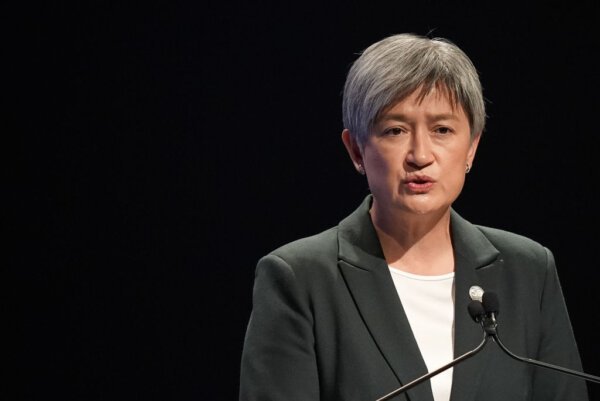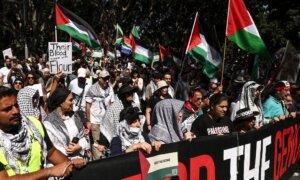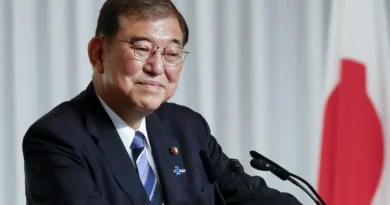Wong’s Speech on 2-State Solution Driven by Political Pressure
It reflects two underlying domestic political factors: the influence of the Left in the Australian Labor Party; and a campaign by a Muslim group against Labor MPs.
Commentary
The statement made by Foreign Minister Penny Wong regarding a “secure and prosperous future” for Israelis and Palestinians only being achievable through a “two-state solution” is seen as a politically motivated move.
This announcement not only deviates from the long-standing bipartisan support for a two-state solution in the Middle East but also fails to address the necessary conditions for recognizing Palestine.
This unfortunate situation began with the Hamas attack on Oct. 7, where 1,139 individuals in southern Israel were killed. Additionally, around 240-250 innocent civilians were taken hostage, some of whom are still in captivity.
Following this incident, Israel took action to eliminate Hamas in Gaza, resulting in an aid convoy being mistakenly targeted, leading to the death of aid workers, including an Australian citizen.
Wong’s statement overlooks the fact that Palestinians have consistently rejected any proposed solutions to the ongoing conflict over several years.
Two primary domestic political factors are at play: the influence of the Left within the Australian Labor Party, and campaigns by Muslim groups against Labor MPs, particularly in Western Sydney.
A new website, Muslimvotesmatter.com.au, identifies 32 seats that are considered vulnerable, mostly held by the Labor Party, some with slim margins.
Notably, the seat of Watson held by Tony Burke, with a 15 percent margin, has a voter base comprising 27 percent Muslims.
In Blaxland, Jason Clare holds a seat with a margin of almost 15 percent, but 35 percent of the voters are Muslim.
Similarly, Chris Bowen represents McMahon with a 9.5 percent margin and an almost 15 percent Muslim voter base. All three are from the Right faction.
According to the Australian Bureau of Statistics, 29 out of 151 federal electorates have a population of 5 percent or more people of Islamic faith, with 27 of these seats being held by Labor.
Of these 29 seats, four are considered marginal—Werriwa and Parramatta held by Labor, Fowler lost to independent Dai Le in 2022, and Banks held by the Liberal party.
Around 16 Labor-held seats have margins of 10 percent or more, leading to concerns within the party.
This electoral pressure is heightened by the pro-Palestinian stance of the Labor Left, with key figures like Prime Minister Anthony Albanese and Foreign Minister Penny Wong being influential members of this faction.
Given that state branches of the Labor Party are mostly controlled by the Left, and figures like former NSW premier Bob Carr have long supported Palestinian aspirations, the party feels compelled to consider these factors in its decision-making.
Concerns about a potential electoral threat from the Australian Greens have also influenced the Labor Party’s current stance.
In conclusion, it is essential for members of parliament to prioritize the national interest over local pressures, and to make informed decisions based on a holistic view of the issues at hand.




